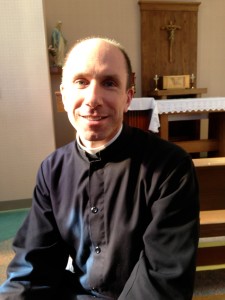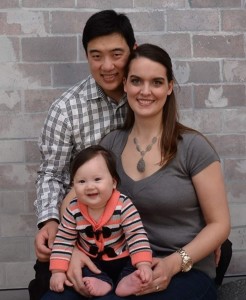Following is the July “Meet a Reader” feature that appears on this month’s book page of the print edition of The Catholic Post.
 How you know me: I grew up as the oldest of four children in Magnolia, IL, on a family hog farm. My home parish is St. John XXIII, formerly known as St. Mary’s, in Henry, IL. I have been studying biology, psychology, and theology at St. Ambrose University in Davenport, IA, for the past four years. My time at Ambrose has not only allowed me to develop intellectually, but has also challenged me to grow spiritually in a deeper relationship with God. Upon graduation from St. Ambrose, I am excited to begin nursing school in January at St. Francis Medical Center College of Nursing in Peoria. I look forward to developing the gifts that God has given me, as I learn how to apply them in my nursing profession.
How you know me: I grew up as the oldest of four children in Magnolia, IL, on a family hog farm. My home parish is St. John XXIII, formerly known as St. Mary’s, in Henry, IL. I have been studying biology, psychology, and theology at St. Ambrose University in Davenport, IA, for the past four years. My time at Ambrose has not only allowed me to develop intellectually, but has also challenged me to grow spiritually in a deeper relationship with God. Upon graduation from St. Ambrose, I am excited to begin nursing school in January at St. Francis Medical Center College of Nursing in Peoria. I look forward to developing the gifts that God has given me, as I learn how to apply them in my nursing profession.
Why I love reading: There’s nothing better than curling up on a rainy day with a warm blanket and devouring into a good book. I love reading for the escape that it provides. A good book will allow you to travel to a new place, meet different people, and experience the world in unique ways. Not all books have this capability, and that is what makes the occurrence so magical.
What I’m reading now: This summer, I have decided to work my way through the Sisterhood of the Traveling Pants series by Ann Brashares for the third time. I first read these books in junior high and high school. I thoroughly enjoyed each book and have grown very fond of the characters and the special friendships they share.
My favorite book: I would classify the Sisterhood series as one of my top favorite reads. I am also a big fan of Nicholas Sparks’ books. It’s difficult for me to pick just one favorite book, but overall, I enjoy reading realistic fiction, especially involving relationships and interactions among characters. I enjoy when networks begin to intertwine. It reminds me of God’s overarching knowledge and guidance over us. His grand design is always so much more intricate and extraordinary than we could ever imagine.











